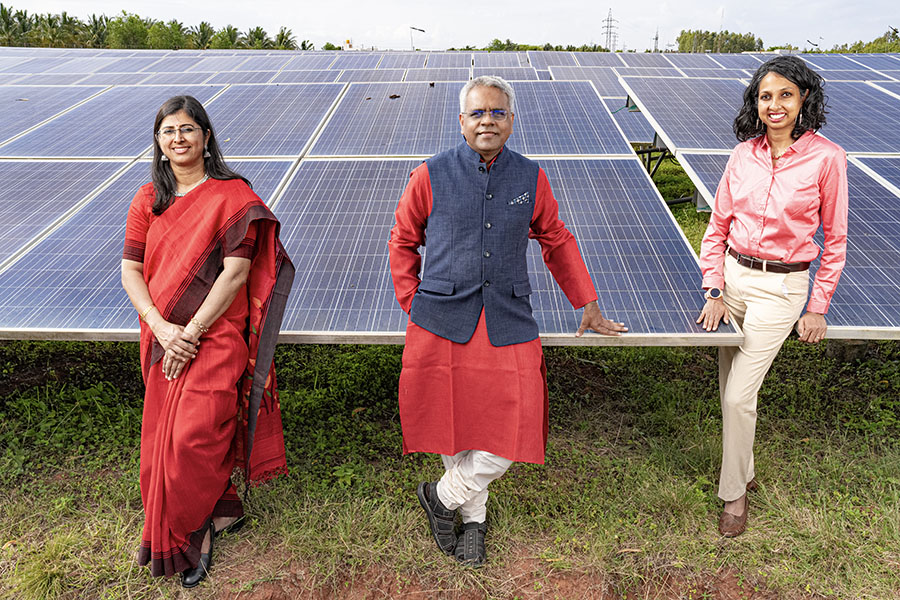In a groundbreaking development for the renewable energy sector, Renkube, a forward-thinking startup, has harnessed the power of artificial intelligence to significantly enhance the efficiency of solar panels. Their innovative approach involves the integration of geometric patterns on the glass surfaces of solar panels, resulting in a remarkable increase in energy production ranging from 20 to 40%.
Spain’s Renewable Energy Milestone
Renkube’s achievement comes at a crucial time, coinciding with Spain’s remarkable accomplishments in renewable energy in 2023. Solar energy, constituting 14% of the national energy mix, soared to an impressive 37,000 GWh—an astounding 34% increase from the previous year. This breakthrough technology emerges as a key player in advancing the capabilities of solar panels and contributing to Spain’s renewable energy success story.
Renkube Addressing Efficiency Challenges
This innovative solution specifically targets the efficiency loss in solar panels caused by the sun’s daily movement. This challenge is particularly relevant for residential and commercial solar installations, where the use of mechanical solar trackers may not be feasible. The technology introduces a movement-free optical tracking system (MFOT) that maximizes light absorption, providing a more efficient alternative for smaller setups.
Founding Visionaries
Founded in 2017 by visionary Indian engineers Balaji Lakshmikanth Bangolae, Lakshmi Santhanam, and Deepika Gopal, who bring a wealth of experience from their time at Cisco, Renkube has quickly become a leader in solar panel innovation.
Key Innovation: Patented Prismatic Glass
Its key innovation lies in a patented prismatic glass featuring distinct geometric patterns. This groundbreaking design significantly boosts panel efficiency without the need for mechanical adjustments, surpassing the benefits offered by traditional trackers. Moreover, This technology eliminates extra costs and maintenance requirements associated with mechanical systems, presenting a cost-effective and sustainable solution.
One of the notable achievements is the development of maintenance-free panels. With the exception of regular cleaning, these panels adapt to specific environmental conditions using Renkube’s AI software, ensuring optimal glass design while preventing damage to the solar cells. This not only enhances the longevity of the panels but also reduces operational costs for end-users.
Commercialization Efforts
Renkube is actively collaborating with solar panel manufacturers to bring their high-efficiency panels to the commercial market. Although these panels are priced slightly higher than conventional counterparts, the quick return on investment stemming from enhanced energy output positions them as a viable and economically sound option for businesses and residences alike.
Beyond Energy Generation: Agrovoltaic Projects
Its impact extends beyond energy generation as they actively apply their technology in agrovoltaic projects. Collaborating with PJTSAU and AgHub Foundation, Renkube’s panels minimize crop shading, potentially improving agricultural yields. This dual-purpose approach demonstrates Renkube’s commitment to integrating technology with nature and aligning with sustainable development goals.
Renkube’s advancements in solar panel technology not only elevate renewable energy output but also pave the way for a harmonious integration of technology with nature. Their commitment to addressing efficiency challenges, offering cost-effective solutions, and contributing to agrovoltaic initiatives positions Renkube as a trailblazer in the pursuit of sustainable development goals. As the world seeks innovative solutions to combat climate change, this breakthrough serves as a beacon of hope for a greener and more sustainable future.
Also, read about Novak Djokovic Overcomes Tough Challenge in Australian Open Opener

